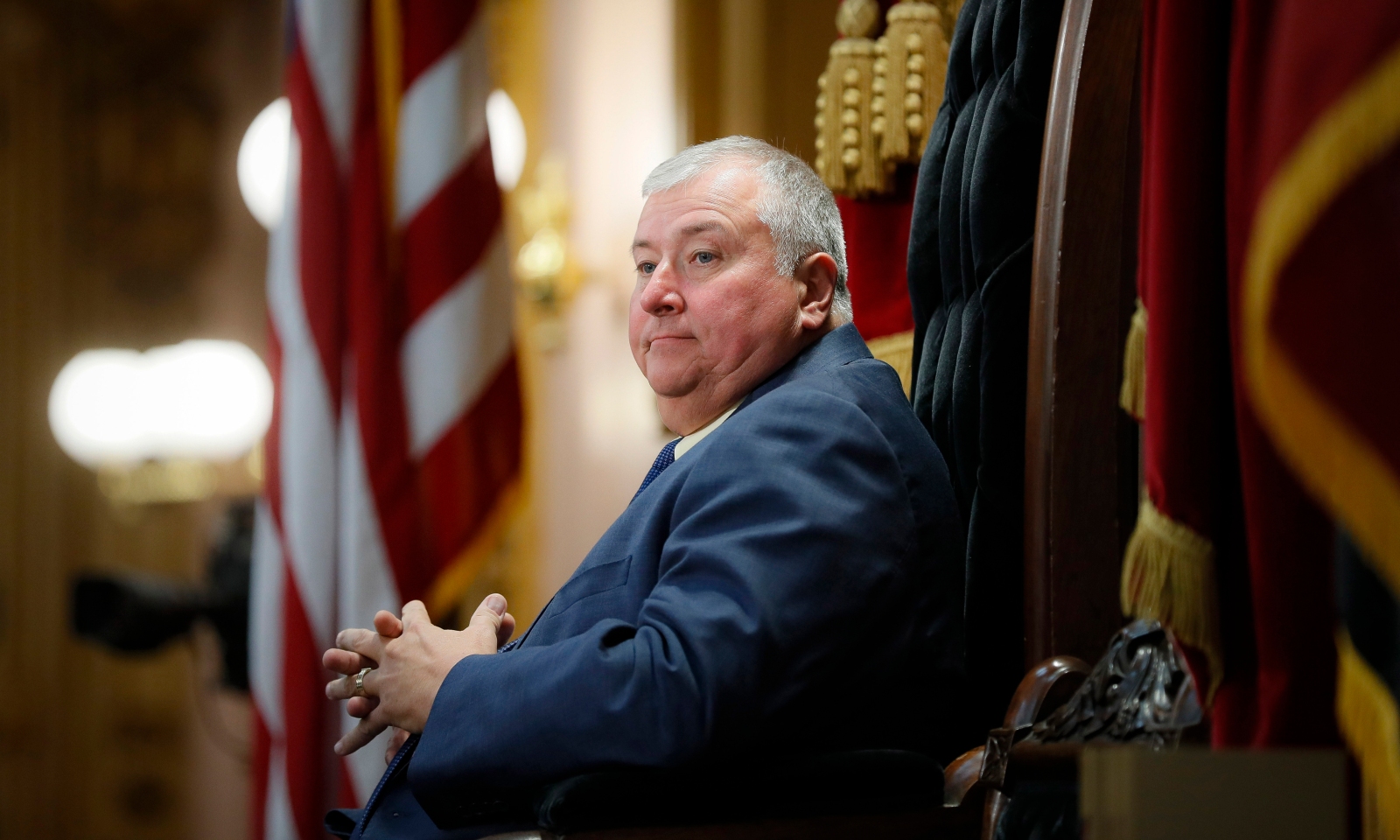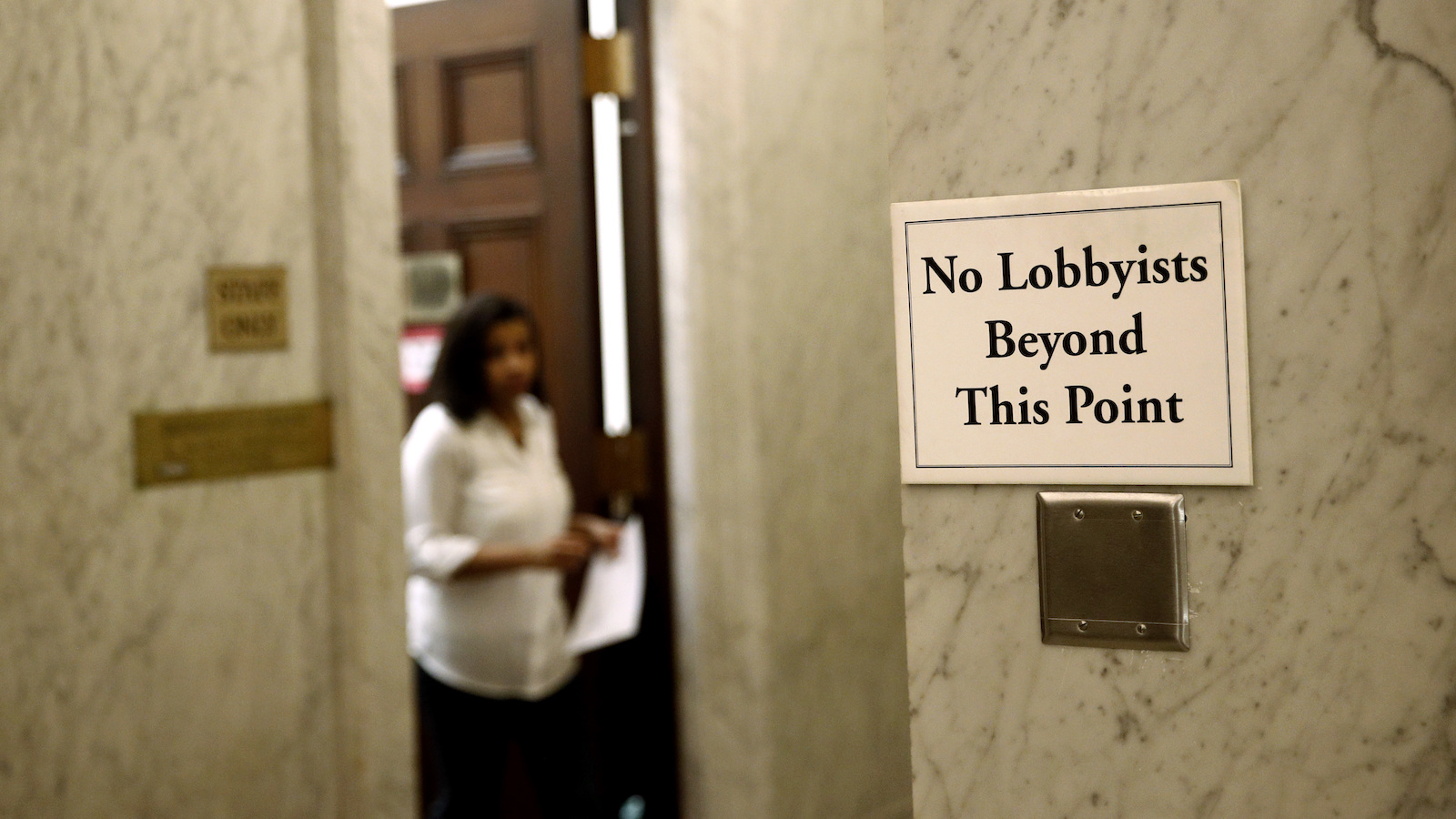When households in the United States pay their gas and electric bills, they’re paying for energy, the wires and pipelines it takes to get that energy into their home, and the costs of maintaining that infrastructure. But those monthly payments could also be funding efforts by utilities to lobby against climate policies.
While federal law prohibits utilities from recovering lobbying expenses from customers, consumer advocates say that those rules lack teeth and aren’t sufficiently enforced. Now, states are taking the lead to ban the practice. According to the utility watchdog group Energy and Policy Institute, lawmakers in eight states, including California and Maryland, have introduced bills this year that would block utilities from charging customers for the costs of lobbying, advertising, trade association dues, and other political activities. The measures build on a growing trend in state policy: Last year, Colorado, Connecticut, and Maine became the first states in the nation to pass comprehensive laws preventing utilities from passing on the costs of lobbying to ratepayers.
“There is a lot of recent success that states can look to for inspiration,” said Charles Harper, power sector policy lead at the climate advocacy group Evergreen Action. “People are starting to pay attention because they’re realizing that they’re paying for climate denial in their bills every month.”
Over the years, utility companies have come under fire for lobbying to stall climate policies and keep fossil fuel plants running. In several high-profile instances, governments have discovered that those lobbying campaigns were funded in part by consumers. In one particularly brazen example, the Ohio utility company FirstEnergy admitted in 2021 to wire fraud after using millions of ratepayer dollars to bribe the then-speaker of the Ohio House of Representatives, Larry Householder, to pass legislation bailing out FirstEnergy’s nuclear and coal power plants and rolling back renewable power standards.
Meanwhile, in California, the state’s Public Advocates Office found last year that the gas utility SoCalGas had charged ratepayers a total of $29.1 million between 2019 and 2023 to fund lobbying efforts against building electrification policies, which reduce the use of oil- and gas-powered appliances in buildings.
Many of the bills introduced this year, including ones in California, Maryland, and Utah, broadly define lobbying as any activity meant to influence political outcomes. This includes advertising to boost a company’s image, as well as dues paid to utility trade associations, which routinely lobby at the federal level. The Edison Electric Institute, an industry group representing investor-owned electric utilities, has advocated against rooftop solar programs and stricter federal carbon emissions standards at power plants, for example. Another trade group representing natural gas utilities, the American Gas Association, has petitioned against more stringent federal energy efficiency standards and advertised the benefits of cooking with natural gas for decades.

“Any claim that we have not been a leader in advancing environmental goals is simply not accurate,” Karen Harbert, president and CEO of the American Gas Association, told Grist in an email. Harbert also noted that the gas industry “has long committed to collaboration with policymakers and regulators to help achieve our nation’s ambitious climate and energy goals.” Sarah Durdaller, director of media relations at the Edison Electric Institute, told Grist that the trade group engages in lobbying and advocacy “to ensure that electricity customers have the affordable, reliable, and resilient clean energy they want and need.” Durdaller noted that the institute complies with federal disclosure requirements and voluntarily provides an annual report on lobbying expenditures.
In Maryland, the utility Potomac Edison, a subsidiary of FirstEnergy, admitted to state regulators last year that it had improperly charged customers nearly $1.7 million in lobbying costs, including some related to Ohio’s FirstEnergy bribery scandal. Maryland’s bill, which has been introduced in both chambers, would prevent utilities from charging customers for investor relations, and travel, lodging, and entertainment for a utility’s board of directors or parent company. The bill, along with similar ones introduced in states like Ohio, Utah and Arizona, would require utilities to submit an annual report that itemizes all the costs associated with lobbying and advertising. In Maryland’s proposal, those costs would include the salaries and job descriptions of any staff engaged in lobbying.
Legislation introduced in California would also require utilities to submit itemized reports on all lobbying activities and clarify that they were funded by shareholders — not customers. California’s bill, like measures introduced in Ohio and Utah, goes further than Maryland’s bill by also requiring state utility commissioners to impose fines on utilities that fail to comply with the rules. Under the California bill, three-quarters of those fines would go toward a fund to help low-income households transition to electric appliances. The other quarter would help fund enforcement of the law.
It’s not uncommon for state regulators to fine utility companies for charging ratepayers for lobbying efforts. In 2022, for instance, the California Public Utilities Commission fined SoCalGas $10 million for using ratepayer money to lobby against local gas bans, federal energy efficiency standards, and building electrification policies. But according to Katy Morsony, a staff attorney at the consumer advocacy group The Utility Reform Network, writing those penalties and detailed annual reporting into law will make it much easier to hold utilities accountable.
Morsony also clarified that the bills wouldn’t prevent utilities from engaging in lobbying — they would simply be forced to fund that advocacy work exclusively with money from shareholders. But as households face rising energy costs, she added that any policy to prevent utilities from unlawfully extracting more money from consumers will make a tangible difference.
“It’s common sense ratepayer protections,” Morsony said. “When you’re in the energy affordability crisis that we’re in, every dollar counts.”



